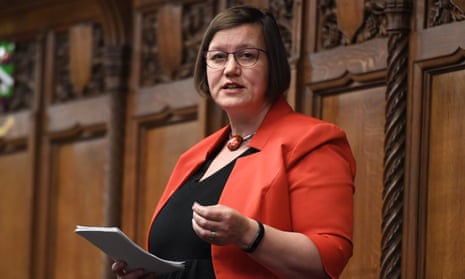MPs have criticised the government for its “unacceptable” failure to draw up plans to recover nearly £5bn taken from the coronavirus emergency bounceback loan scheme by fraudsters.
The government must give more resources to counter-fraud agencies and account properly for how much of the money will be lost forever, according to a report published on Wednesday by parliament’s influential public accounts committee.
In a package of measures developed under the chancellor, Rishi Sunak, the government focused its support for the economy at the start of the coronavirus pandemic on companies and people in work. The bounceback loan scheme (BBLS) was aimed at supporting small businesses, while the furlough scheme covered 80% of the wages of people unable to do their jobs.
However, the MPs said that the government was “complacent in preventing fraud” in particular in bounceback loans, which were given by banks but 100% guaranteed by the state – leaving taxpayers with the bill. An estimated £4.9bn of the £47bn spent on the BBLS was lost to fraud, while another £12bn has been lost via the scheme mainly through businesses collapsing during the pandemic.
Another £5.7bn is estimated to have been lost from fraud and error within the furlough and self-employment schemes, two of the other key support schemes during the crisis.
The business department and the state-owned British Business Bank, which managed the bounceback scheme through 24 commercial lenders, missed opportunities to reduce the level of fraud and are relying too much on the lenders recovering stolen money, MPs said.
Government officials understood the risks entailed in the design of the scheme, and obtained a ministerial direction to override the usual requirements on value for money.
Dame Meg Hillier, the Labour MP who chairs the committee, said: “With weary inevitability we see a government department using the speed and scale of its response to the pandemic as an excuse for complacent disregard for the cost to the taxpayer.
“More than two years on, [the business department] has no long-term plans to chase overdue debt and is not focused on lower-level fraudsters who may well just walk away with billions of taxpayers’ money.”
The government’s failure to devote more resources to chasing the fraud has frustrated anti-corruption campaigners and led directly to the resignation of a minister, Lord Agnew, at the dispatch box. Agnew said the government had left a “Dad’s Army Operation” in charge of recovering taxpayer money, and that it was a “disgrace” that only 49 arrests had been made up to March across an estimated 100,000 fraud cases.
The report said: “It is unacceptable that the department has no long-term plans for recovering overdue debts and it cannot just accept the current level of accepted debt.”
The MPs’ report said the government was much too slow in introducing basic checks such as looking for duplicate applications, and that even the most up-to-date estimates of fraud losses are likely understating the true cost because they do not include fraud from companies overstating their turnover to qualify for bigger loans.
The report said: “We are concerned that its complacency towards smaller scale fraud and turnover misstatement provides a limited deterrent effect and could encourage fraudsters to try to take advantage of other government schemes.”
The business department was approached for comment.










